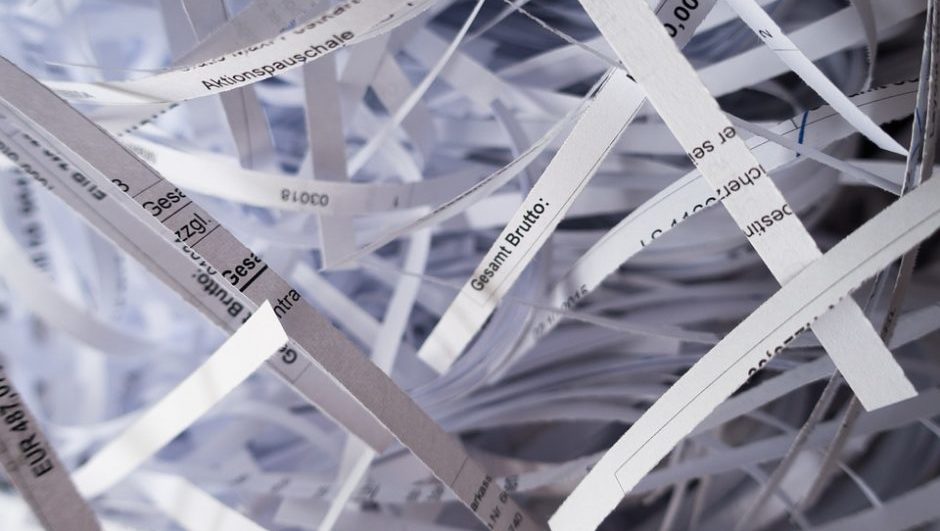2020 was a leap year for the document management industry. Businesses still holding onto paper went digital—finally. It’s a two-part process: paper is scanned and then paper is shredded. But some businesses are still waiting in line for their own digital revolution. Until a high-volume scanner comes along and turns those old paper records (that are expensive to store and cumbersome to retrieve) into lightweight electronic files, you are obligated to take care of them. In most industries, regulations require retention. That means keeping documents for a defined period until their expiration date. While we recommend a solid paperless office strategy for all forward-thinking companies, here five tips to secure and protect physical documents from potential threats in the meantime.
Not digital yet? Here are 5 Tips For Protecting Paper Documents
Topics: paper scanning, paperless office, how to scan documents, protecting paper documents, paper documents, scan to zero
A paper-based archive requires a lot of work to b maintained in an excellent condition. After all, paper is a pretty vulnerable material.
Have you introduced any protective measures when it comes to the safety of your business documents? If the answer is negative, the time is right to start thinking about ensuring the integrity of your archive. Paper documents are vulnerable in many ways and here are some of the main reasons why you should start thinking about their protection.
Is your business prepared for a natural disaster? Preparing for these unpreventable circumstances will require more than an insurance policy. This is because no amount of insurance can recover your company's data once it is destroyed. Protecting company data from natural disasters requires a specific plan. Here are the steps that you need to take:
Topics: document security, protecting paper documents, secure document storage, data security
Why Not Protecting Paper Documents Can Harm Your Business
One of the most recent developments when it comes to improving your organization's operational efficiency is to go digital. By taking this step, you have given each member of your team the capability to handle tasks much more quickly and with fewer errors. Going digital has allowed you to mostly ignore your paper documents – which is a good thing, since paper documents are expensive and difficult to manage. However, even if you rarely – or never – use them, protecting paper documents still needs to be a priority for your organization. Here is why:
Topics: document security, document protection, protecting paper documents



